
Intro
In today’s fast-paced world, mastering money management is more crucial than ever. Whether you’re navigating student loans, planning for retirement, or trying to save for a dream vacation, having a solid grasp on personal finance can pave the way for a secure and fulfilling life. Fortunately, a plethora of resources exists to guide you on this journey, but few are as impactful as well-written books. In this post, we’ll explore five of the best books that provide invaluable insights into money management. Each one offers unique perspectives and practical strategies to help you take control of your finances.
“The Total Money Makeover” by Dave Ramsey – A Comprehensive Guide to Debt Elimination
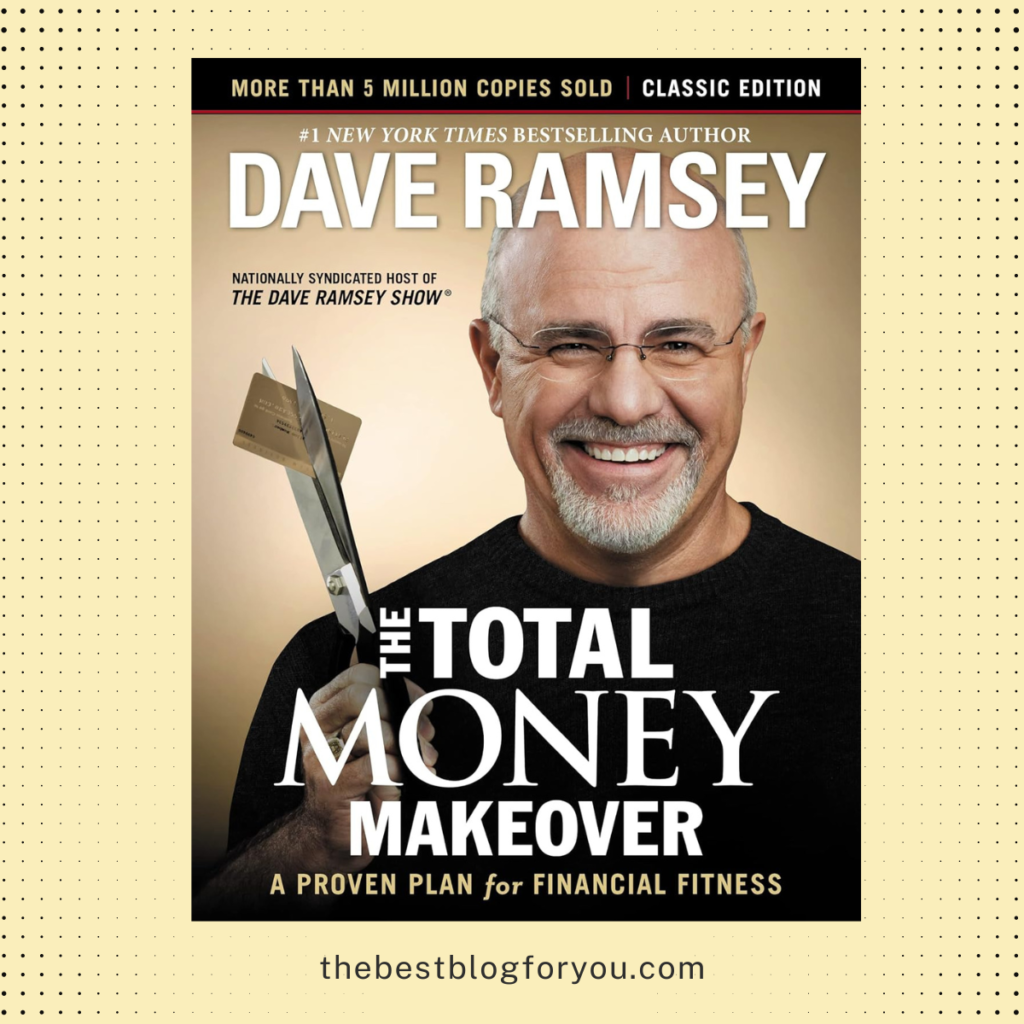
Dave Ramsey’s “The Total Money Makeover” stands as a pillar for those serious about transforming their financial lives. The book introduces readers to the “Baby Steps,” a series of actionable guidelines designed to help eliminate debt and build wealth systematically. Through these steps, Ramsey emphasizes key financial practices such as creating a detailed budget, saving an emergency fund, and attacking debt with a focused intensity.
What sets this book apart is Ramsey’s ability to make complex financial concepts accessible to everyone. He interweaves compelling success stories from individuals who have successfully used his methods to reclaim control over their finances. This practical advice is coupled with a strong emphasis on changing one’s mindset and behaviors toward money, arguing that financial freedom is as much about personal discipline as it is about numbers.
A particularly valuable aspect of “The Total Money Makeover” is its focus on living debt-free. Ramsey challenges the societal norms that accept debt as a way of life and instead advocates for a lifestyle centered around financial independence and security. This book is not just a guide; it’s a call to action, urging readers to take immediate, decisive steps toward improving their financial well-being.
With its straightforward, no-nonsense approach, “The Total Money Makeover” provides readers with a clear path to follow, making it an indispensable resource for anyone aiming to achieve long-term financial stability.
Check out: Key Takeaways from The Total Money Makeover by Dave Ramsey
“Rich Dad Poor Dad” by Robert Kiyosaki – Understanding the Mindset of Wealth
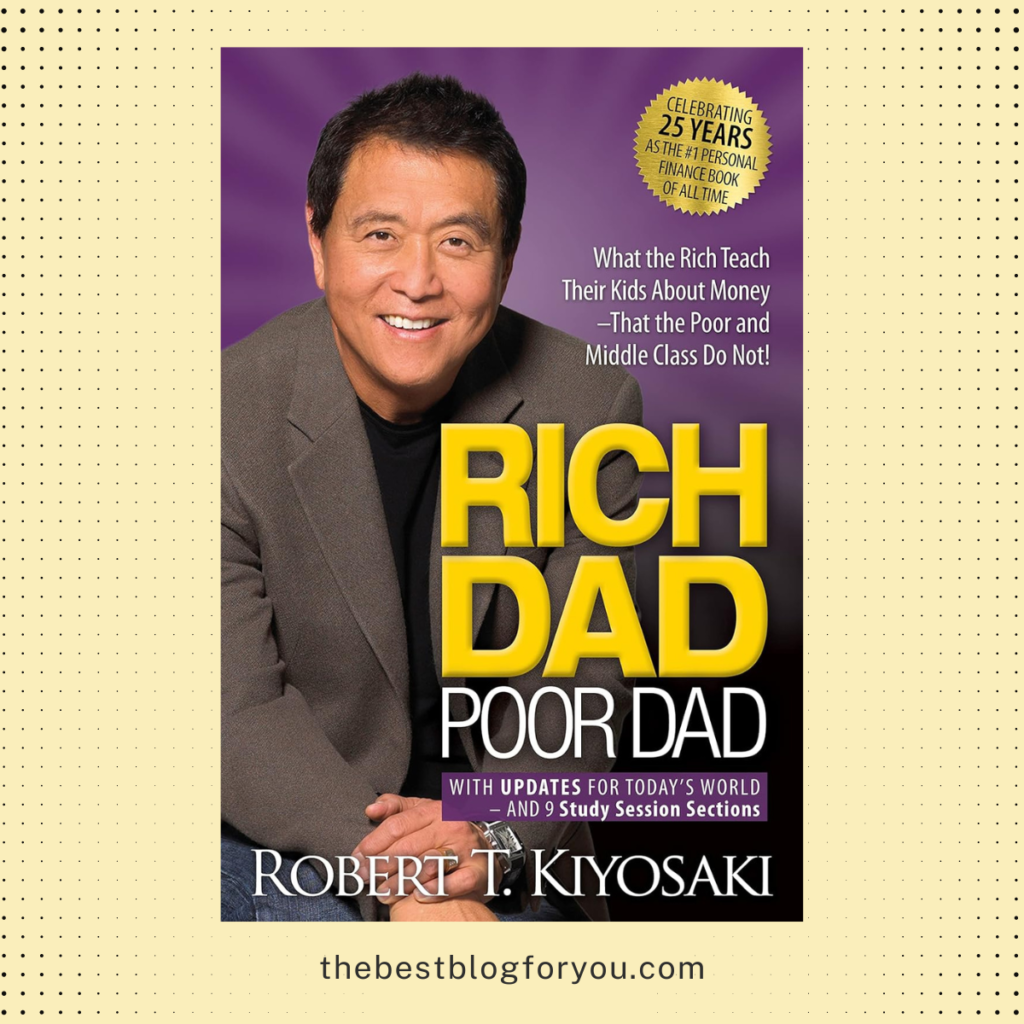
Robert Kiyosaki’s “Rich Dad Poor Dad” offers readers a transformative look at the financial mindsets that can lead to wealth or financial struggle. Through the lens of two paternal figures—his “rich dad” (his best friend’s father) and his “poor dad” (his biological father)—Kiyosaki shares the contrasting attitudes and beliefs that shape their financial destinies.
A core principle of the book is the critical importance of financial education, a subject Kiyosaki argues is glaringly absent from traditional schooling. He highlights the stark differences between working for money and having money work for you. By investing in assets such as real estate, stocks, and businesses, rather than liabilities like cars and expensive gadgets, Kiyosaki encourages readers to build wealth that generates passive income.
Kiyosaki also delves into the significance of entrepreneurship and taking calculated risks. He advises readers to seize opportunities for investment and business ownership as pathways to financial independence. The book challenges conventional wisdom, urging readers to question long-held beliefs about job security and retirement savings.
Another key takeaway from “Rich Dad Poor Dad” is the concept of financial intelligence, which includes understanding taxes, managing debt, and identifying investment opportunities. Kiyosaki provides practical examples and personal anecdotes to illustrate these principles, making complex financial concepts more digestible.
The book’s engaging storytelling format keeps readers captivated while imparting invaluable lessons on money management. Kiyosaki’s insights into the psychological barriers that often hold people back from financial success are particularly enlightening. By addressing fears, habits, and attitudes towards money, he empowers readers to rethink their financial strategies and adopt a mindset geared towards wealth-building.
“Rich Dad Poor Dad” serves as a compelling guide for anyone looking to break free from financial limitations and cultivate a mindset that fosters long-term wealth.
Check out: Key Takeaways from Rich Dad Poor Dad by Robert Kiyosaki
“Your Money or Your Life” by Vicki Robin and Joe Dominguez – Achieving Financial Independence and Life Fulfillment
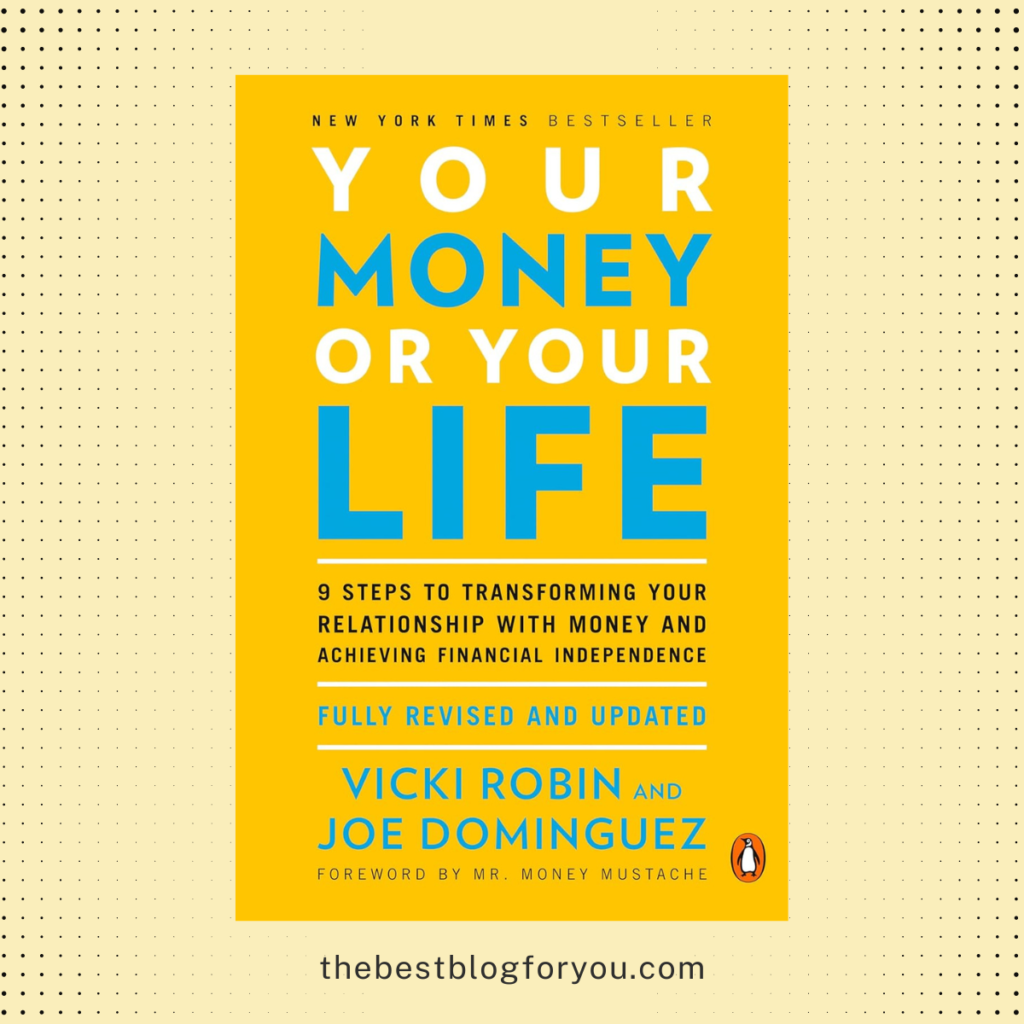
“Your Money or Your Life” by Vicki Robin and Joe Dominguez goes beyond conventional financial advice by integrating personal finance with broader life satisfaction. The book advocates for a paradigm shift in how we perceive money and its role in our lives, urging readers to view money as a tool for achieving life goals rather than an end in itself.
The authors introduce a nine-step program designed to help individuals take control of their financial life while fostering a deeper sense of fulfillment. One of the cornerstone concepts is the idea of calculating your “real hourly wage,” which factors in the true costs associated with earning income, such as commuting and work-related expenses. By doing this, readers can better understand the actual value of their time and make more informed decisions about how they spend their money and energy.
Robin and Dominguez also emphasize the importance of tracking every penny spent and categorizing these expenses to reflect their alignment with personal values and life goals. This rigorous accounting helps individuals identify areas where they might be spending money unconsciously and reallocate resources to areas that provide genuine satisfaction and joy.
Another key element of the program is the focus on achieving financial independence. The authors provide practical strategies for reducing expenses, increasing savings, and investing wisely, all aimed at reaching a point where one’s passive income can cover living expenses. This financial freedom allows individuals to pursue passions and interests without being tethered to a traditional job.
What sets this book apart is its holistic approach, which encourages readers to consider the emotional and psychological aspects of money management. By fostering a mindset that values sufficiency and mindful spending, “Your Money or Your Life” helps readers not only improve their financial situation but also enhance their overall quality of life. The book’s blend of practical advice and philosophical insights offers a transformative approach to both money and living.
Check out: Top Takeaways from Your Money or Your Life by Vicki Robin and Joe Dominguez
“The Millionaire Next Door” by Thomas J. Stanley and William D. Danko – The Surprising Secrets of America’s Wealthy
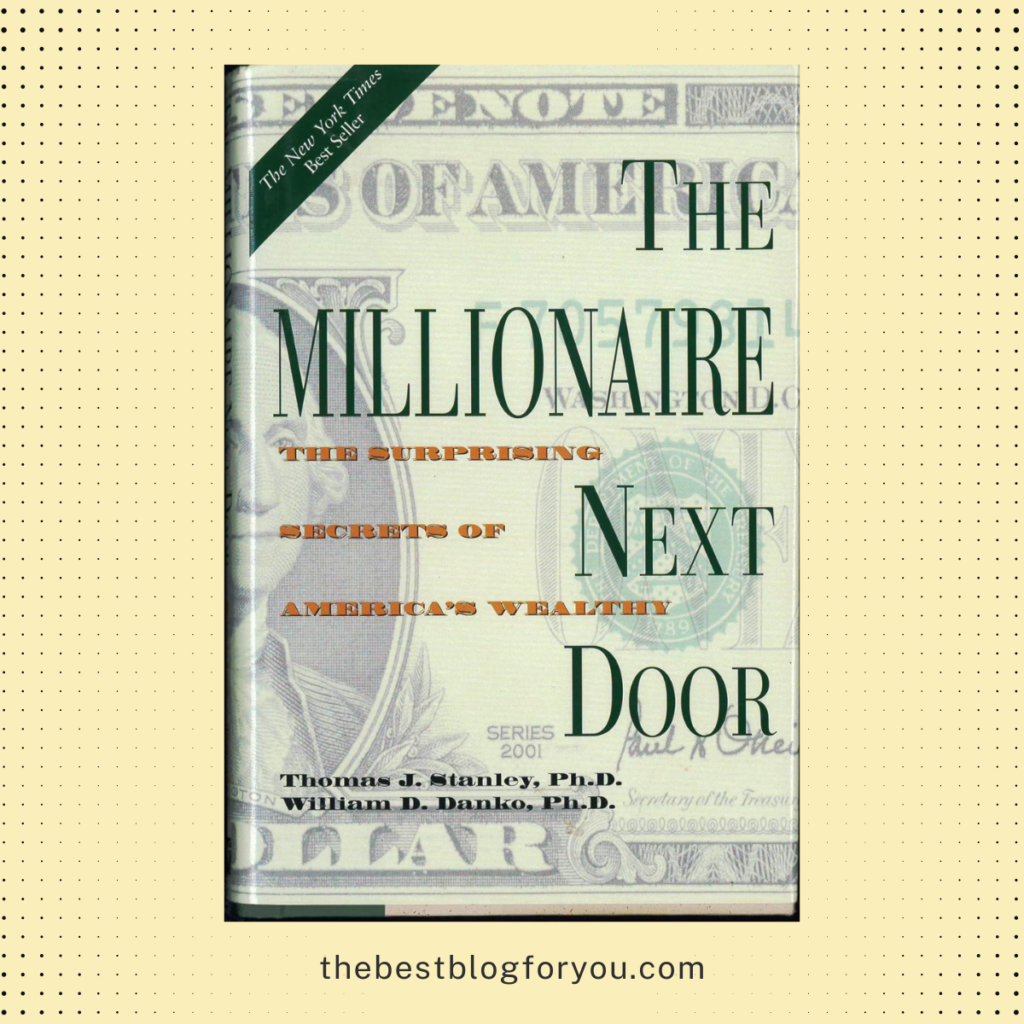
Thomas J. Stanley and William D. Danko’s “The Millionaire Next Door” unveils the often unexpected traits and habits that define America’s wealthy. Through meticulous research, the authors reveal that many millionaires lead modest lives, far removed from the flashy lifestyles often portrayed in the media. They focus on budgeting, wise investments, and living below their means.
The book shatters common myths about wealth, showing that the majority of millionaires are self-made, not recipients of large inheritances or high incomes. Instead, they build their fortunes through consistent, disciplined money management practices. One of the key insights from the book is that accumulating wealth is more about behavior and habits than it is about how much you earn.
Stanley and Danko identify critical traits shared by millionaires, such as frugality, careful planning, and a strong focus on financial independence. They highlight the importance of budgeting and prudent investing as fundamental strategies for wealth accumulation. The authors emphasize that many millionaires are business owners or self-employed, often opting for careers that allow them greater control over their financial destinies.
Another intriguing aspect the book explores is the tendency of millionaires to live in middle-class neighborhoods, avoiding high-status symbols that might erode their savings. They often drive reliable, modest cars and refrain from extravagant spending, underscoring the principle that wealth is not about visible consumption but about financial security and freedom.
For readers interested in understanding the practical steps to achieving financial success, “The Millionaire Next Door” offers a treasure trove of insights backed by real-world data. The book’s findings challenge conventional wisdom and provide a realistic blueprint for building wealth through thoughtful, disciplined money management.
Check out: Money Secrets from The Millionaire Next Door by Thomas J. Stanley and William D. Danko
“I Will Teach You to Be Rich” by Ramit Sethi – A Modern Approach to Personal Finance
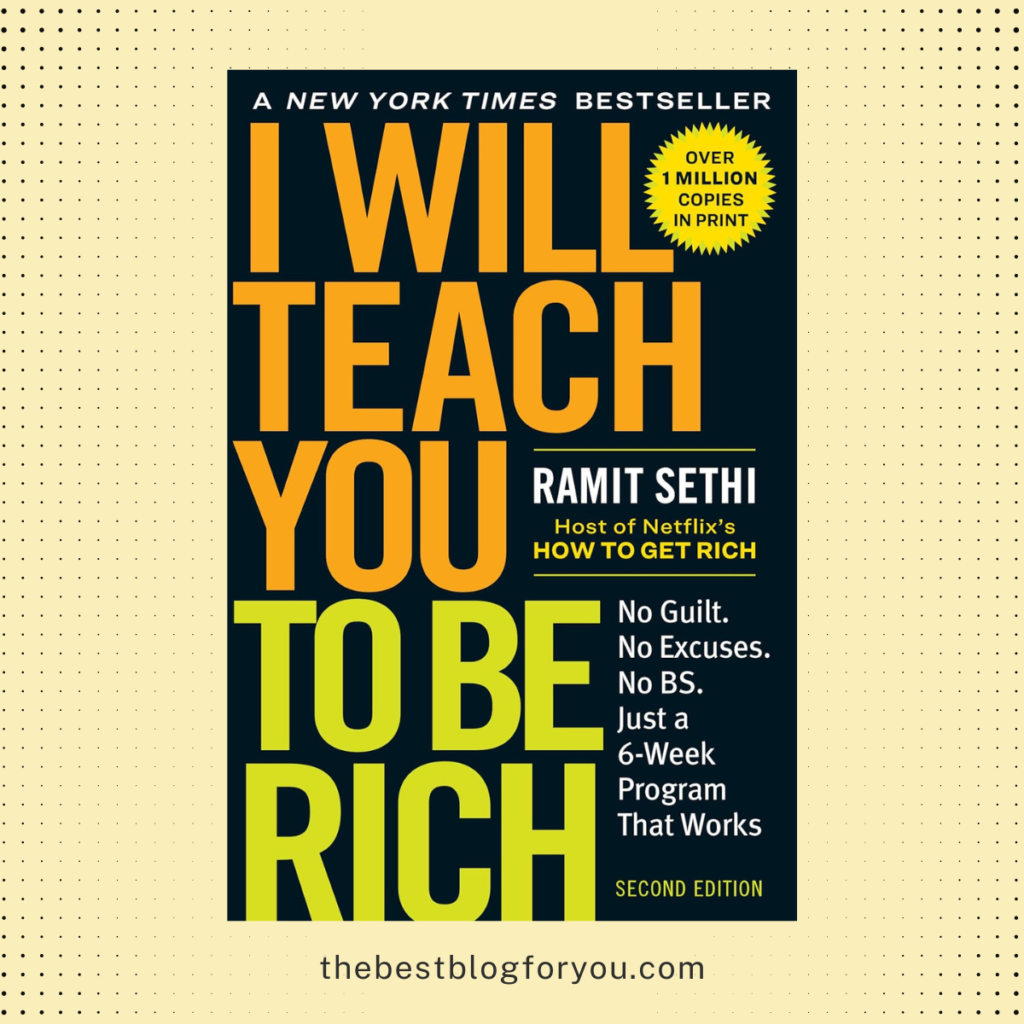
Ramit Sethi’s “I Will Teach You to Be Rich” offers a refreshingly modern perspective on money management, specifically tailored for young adults. The book is witty, relatable, and full of practical tips that make personal finance accessible.
Sethi outlines a six-week program covering everything from saving and investing to automating finances and optimizing credit cards. One of the standout features of this book is its emphasis on psychological barriers to money management and how to overcome them.
Sethi encourages readers to adopt a “rich” mindset rather than focusing solely on frugality. He provides actionable advice that demystifies investing and shows how to build a sustainable financial future without sacrificing enjoyment today.
For those looking to establish good financial habits early in their careers, this book is an essential read.
Check out: Key Takeaways from I Will Teach You to Be Rich by Ramit Sethi
